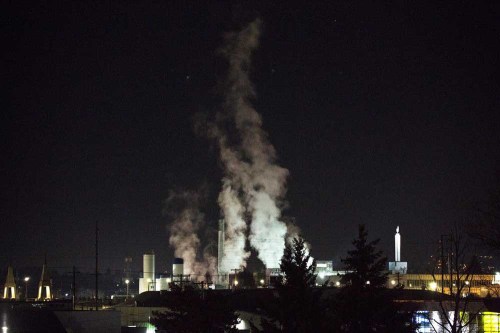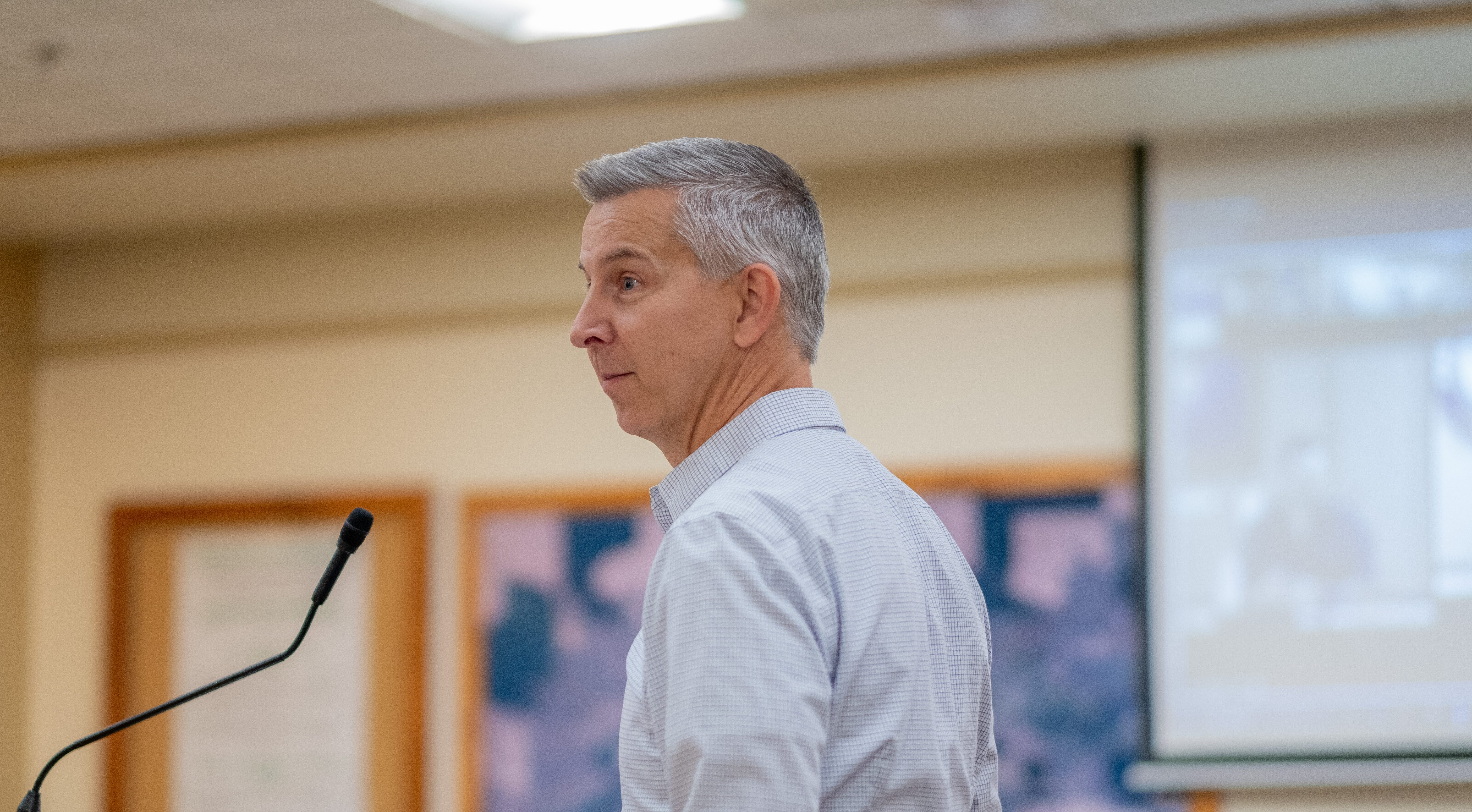Late amendments being discussed on cap and trade, as the massive proposal hits turbulence
Published 6:00 pm Tuesday, June 11, 2019

- Steam rises from the Darigold facility in Portland. As the end nears for the legislative session, the policy work is being overtaken by raw politics that dumped the cap and trade idea into uncertain waters.
SALEM — For months, lawmakers pushing a major environmental plan that would put a price on carbon emissions spent a remarkable amount of time crafting policy that has failed to gain traction since 2007.
But as end nears for the legislative session, the policy work is being overtaken by raw politics that dumped the cap-and-trade idea into uncertain waters.
Trending
The legislation, which would become only the second economy-wide carbon pricing program in the nation, has been deeply partisan. But it has become clear in recent days that even some Democrats are starting to pull away in the face of a last-minute push by industry to cut into House Bill 2020.
By the end of last week, five Democratic senators were either against the bill or uncommitted. As a caucus of 18, the Democrats can only lose two votes and still pass one of the party’s most ambitious proposals. It’s long been clear that no Republican would back the proposal.
Senators Laurie Monnes Anderson, D-Gresham, Mark Hass, D-Beaverton, Arnie Roblan, D-Coos Bay, Elizabeth Steiner Hayward, D-Beaverton and Betsy Johnson, D-Scappoose, are potential no votes.
On Monday, Sen. Michael Dembrow, D-Portland, agreed to minor amendments to placate Monnes Anderson, which might just seal the deal. Dembrow is one of the main architects of the bill and co-chaired the committee that oversaw it.
The bill is going back to the Joint Ways and Means Subcommittee on Natural Resources on Tuesday afternoon. It will likely consider three amendments: the Boeing amendment, one designed to lessen the impact on timber mills and one that would ask the Oregon Supreme Court to review whether proceeds from an increase in natural gas rates have to be dedicated to the Oregon School Fund.
Steiner Hayward and Hass have not publicly opposed the bill, and political insiders feel their district constituents are too liberal for either senator to vote against cap and trade. Steiner Hayward declined to comment, and Hass didn’t respond to two requests for an interview.
Trending
As of Monday evening, business lobbyist Shaun Jillions said there “a number of senators still concerned with the bill for a number of reasons.” When asked how many, he said more than two. Jillions has been one of the most active and opposed lobbyists on cap and trade. Where other lobbyists have worked to change specific parts of the bill, Jillions has attempted to significantly weakening it overall.
Johnson is actively working against the legislation. Asked to comment, she declined, saying she’s a “woman on a mission” as she walked away.
Jillions isn’t the only one working to change the bill at the last minute.
Monnes Anderson said once it got out that she was a potential no vote, she was bombarded by lobbying efforts. She has been contacted by executives from energy companies and the governor, she said, to lobby her one way or the other.
“The rumor got out that I was going to be a no, and it’s amazing, because people have worked so hard on this bill,” Monnes Anderson said, adding it’s become a political discussion over a policy one.
“I think those who are opposed to the bill have really gotten together and are going to support one another,” she said. “So yes, politics is really involved here.”
Carbon pricing has been in the works since 2007, long enough that its one-time champion, former Sen. Chris Edwards, is now a timber lobbyist working against its passage. Democrats have taken a serious run at it each session since 2016, but have failed to pull it off. After the 2018 session, House Speaker Tina Kotek, D-Portland, and Senate President Peter Courtney, D-Salem, co-chaired a joint interim committee solely tasked with designing the program, a rare if not unprecedented move.
Going into 2019, cap and trade led the Democrats’ agenda alongside education reform. But while the Student Success Act passed a month ago, the environmental legislation has gone through 19 hearings and seen more than 100 amendments proposed. The bill that backers once hoped would be signed into law on Earth Day still remains in committee as the session nears an end.
Over the past couple weeks, a tanking effort by Jillions and a handful of other lobbyists has had surprising success. Jillions got Johnson to submit a 22-page amendment that cut into every aspect of the bill, essentially demolishing it.
Dembrow and the other co-chair, Karin Power, D-Milwaukie, have said they would in no way consider supporting the amendments.
Dembrow acknowledged some Democrats have strayed but “discussions are happening and moving in a positive direction.”
The proposal was expected to be on the House floor this week but a crucial vote in the Joint Ways and Means Committee that was supposed to happen last week was delayed.
That is the last committee hurdle before votes in both chambers.
Leading up to that decision, Jillions and his team made the rounds, specifically with moderate Democrats, pitching his amendment as a few “technical fixes.”
Legislative bill drafters met with House Democrats last week to go over the amendment in detail, explaining that the changes were expansive.
An analysis by the Oregon Carbon Policy Office found Jillions’ amendment “proposes changes in every dimension of the bill.”
The bill’s current form puts a cap on 52 million metric tons of greenhouse gas emissions, and reduces the cap each year until there is an 80% reduction by 2050. It covers polluters across the economy, aside from agriculture and forestry.
Entities polluting at least 25,000 metric tons must pay for all of their pollution by buying allowances from the state. Each allowance would offset a ton of emissions. The amount of allowances available would decline each year to force emitters into more ecofriendly practices.
Jillions’ amendments remove a 45% emissions reduction goal for 2035. It would change the cap to cover 27 million metric tons of emissions and allot 93% of allowances for free to regulated polluters. This would “dramatically” reduce revenue from the allowance auctions, and actually run the program at a deficit three years into its operation, the analysis found.
The amendment would give natural gas marketers free allowances until 2030 and exclude all fuels.
“These changes render the program non-viable,” the office wrote.









